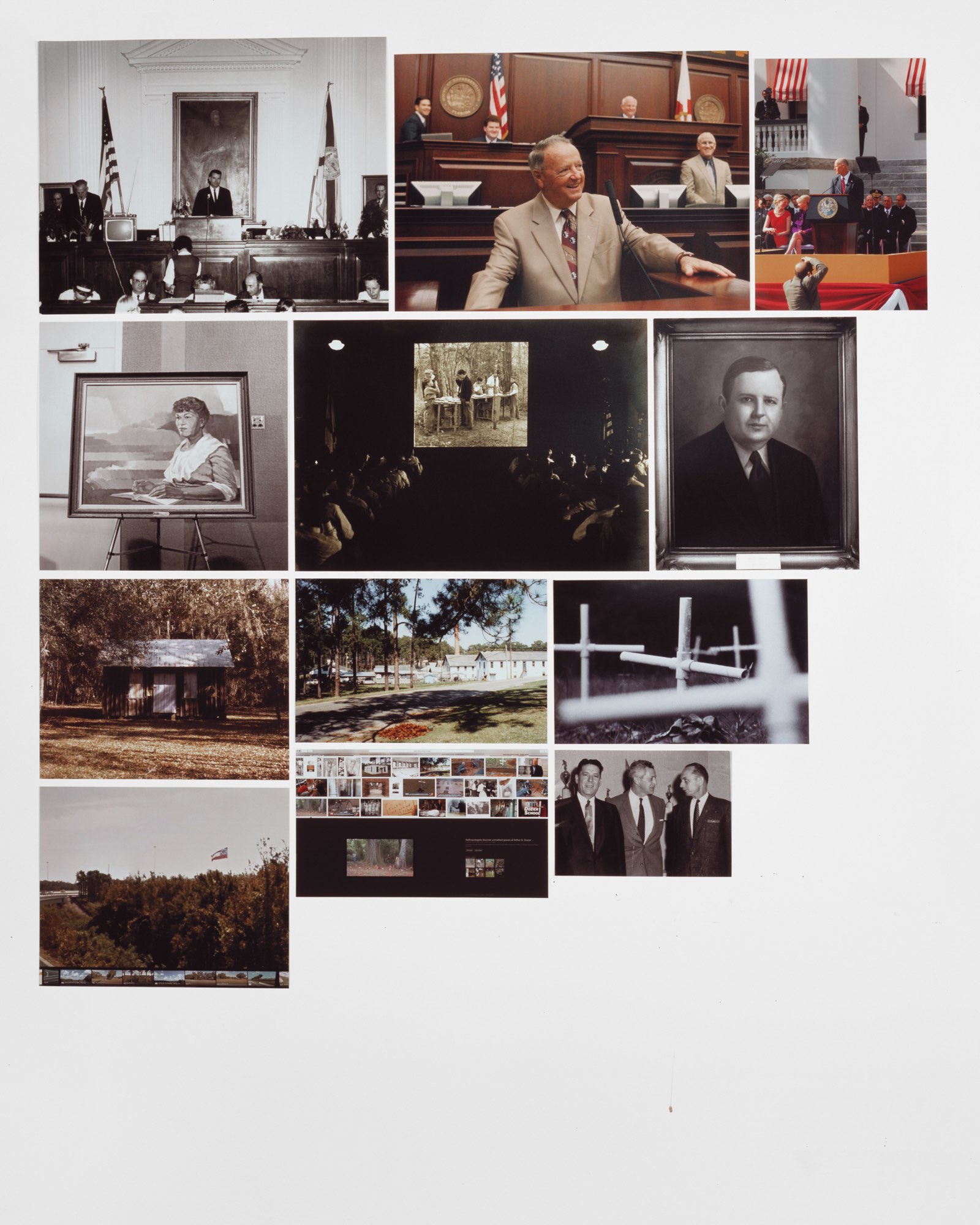In Pictures: Cracker politics in the Deep South
- Text by Alex King
- Photography by Michael Adno

“Look how big that scar is, how much there is to consider in the past year of our country’s history let alone in its entirety,” explains Michael Adno, as he considers the protests that followed the killing of Mike Brown by Ferguson police and the awakening against institutionally racist violence that followed.
Cracker Politics, The Limits of Colonial Knowledge is a long-term documentary and research project by artist and photographer Michael Adno that explores how the collective construction of American history and identity impacts on the nation’s contemporary political climate. As a first generation immigrant, the son of a South African father and an Austrian mother, the project is a personal journey to find his position in his history and his country.
Michael began close to home, in his birth state of Florida. “I was initially researching the state of Florida’s pre-colonial era of Native American Indian cultures, the colonial tenure of Britain, Spain, France, and the ways in which these histories, cultures, and sites were preserved, recorded, and understood,” he explains. “That first month I traveled around the state visiting specific sites, archives, historical societies, and looking for evidence of things that could complicate or contradict what was understood and accepted as dominant histories.”
This being Florida, it wasn’t long before he stumbled across the KKK. “In 2014, there was an FBI sting of some KKK members in Alachua County, where I been working for almost two years, for a sanctioned murder,” he recalls. “So I had one foot in the water, researching the Klan and other white supremacists in Florida from 1867 to the present, as well as these other fraternal organisations where there was clearly overlapping membership. I wasn’t sure how to approach it but my goal was to show the influence that these types of organisations had on local communities, municipal government, and state politics.”
The presence of white supremacists in law enforcement, politics, and everyday life throughout the many waves of Klan membership is relatively well recorded. “While it may not surprise anyone to hear how influential these types of organisations and their ideologies were in the development of this place, its politics, and its culture, their effects are still overwhelmingly present and in some cases seeing a resurgence,” Michael explains.
Michael’s show at Spring/Break Art Fair showcases a small part of his investigative project, work from 2014 – 2016 that addresses the specific effects of fraternal organisations, far right ideologies, and corporate interests in Florida.
With the continued disproportionate killing of black people at the hands of police, the project couldn’t be more relevant today. “This pursuit is about tracing the history of white supremacists in this state at so many different levels but also to better understand its trajectory with the rise of far-right ideology and the role that institutions, communities, and individuals play in that phantom presence,” Michael explains. “All of this has become increasingly urgent with the current presidential election, the countless traumatic events of last year, and the current global conversation centred on xenophobia and the refugee crisis.”
Michael Adno’s Cracker Politics in the Deep South: The Limits of Colonial Knowledge is on show at Spring/Break Art Fair, New York, March 1-7.
Latest on Huck

“My homeland Is everywhere”: Samantha Box is redefining contemporary photography
Confluences — Finding the boundaries of documentary photography too limiting, the US-based photographer has developed a style entirely her own as a canvas to explore her overlapping identities.
Written by: Miss Rosen

In the ’60s and ’70s, Greenwich Village was the musical heart of New York
Talkin’ Greenwich Village — Author David Browne’s new book takes readers into the neighbourhood’s creative heyday, where a generation of artists and poets including Bob Dylan, Billie Holliday and Dave Van Ronk cut their teeth.
Written by: Cyna Mirzai

How Labour Activism changed the landscape of post-war USA
American Job — A new exhibition revisits over 70 years of working class solidarity and struggle, its radical legacy, and the central role of photography throughout.
Written by: Miss Rosen

Analogue Appreciation: Emma-Jean Thackray
Weirdo — In an ever more digital, online world, we ask our favourite artists about their most cherished pieces of physical culture. Today, multi-instrumentalist and Brownswood affiliate Emma-Jean Thackray.
Written by: Emma-Jean Thackray

Meet the shop cats of Hong Kong’s Sheung Wan district
Feline good — Traditionally adopted to keep away rats from expensive produce, the feline guardians have become part of the central neighbourhood’s fabric. Erica’s online series captures the local celebrities.
Written by: Isaac Muk

How trans rights activism and sex workers’ solidarity emerged in the ’70s and ’80s
Shoulder to Shoulder — In this extract from writer Jake Hall’s new book, which deep dives into the history of queer activism and coalition, they explore how anti-TERF and anti-SWERF campaigning developed from the same cloth.
Written by: Jake Hall








